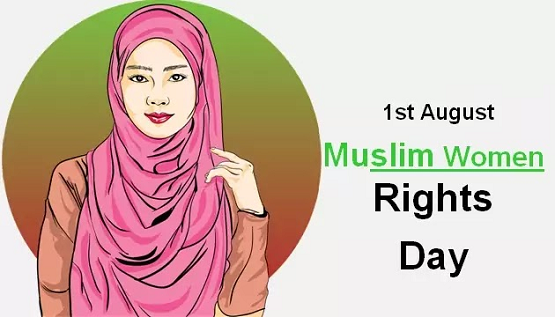Muslim Women’s Rights Day is observed across the nation on August 1 to celebrate the enactment of the law against triple talaq. The central government enacted the law on August 1, 2019, that has made the practice of instant triple talaq a criminal offence. The Union ministry of minority affairs announced that Muslim Women’s Rights Day will be observed across the nation on August 1 and it will celebrate the second anniversary of the enactment of the law against triple talaq.
Significance of Muslim Women’s Rights Day 2023
The day is celebrated to recognize and honour the enactment of the law against the Triple Talaq. The Triple Talaq rule has been declared illegal by the Government of India under the Act of 2019, Protection of Marriage Rights. The Muslim women celebrate the day with utmost happiness and have welcomed the law wholeheartedly.
History of Muslim Women’s Rights Day
The Supreme Court in August 2017 declared the practice of triple talaq or a form of divorce based on the husband pronouncing divorce thrice in quick succession as ‘unconstitutional’.
In December 2017, citing the Supreme Court judgment and cases of triple talaq in India, the government introduced the Muslim Women (Protection of Rights on Marriage) Bill in Parliament. The bill was passed by the Lok Sabha but was stalled by the opposition in the Rajya Sabha. The bill was reintroduced and passed by both the Houses of Parliament in July 2019. Consequently, the bill received assent from President Ram Nath Kovind. The legislation, which outlaws instant triple talaq, sets forth three years jail for violations and also make the violator liable to pay a fine.
Important facts
- Muslim Women’s Rights Day is celebrated on 1st August in the backdrop of Triple Talaq Bill which was approved in Parliament on 1st August 2019.
- The Triple Talaq Bill was a major milestone in freeing Muslim women from the shackles of social evil of the conditions of divorce.
- Shah Bano Begum & Ors Vs Mo Ahmed Khan’, ‘Shayra Bano Vs Union of India and Others’ laid the foundation stone for this move.
- In her writ petition, Shayra Bano had sought the Supreme Court to declare the three practices talaq-e-biddat, polygamy, nikah-halala unconstitutional.
- Cases were being registered citing violation of Articles 14, 15, 21, 25 of the Constitution.




 Which Painting is known as the Indian Mo...
Which Painting is known as the Indian Mo...
 Which Indian State was the First to Chan...
Which Indian State was the First to Chan...
 Govt To Launch CBDC-Based Food Subsidy P...
Govt To Launch CBDC-Based Food Subsidy P...








